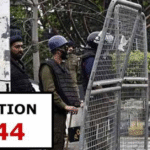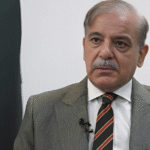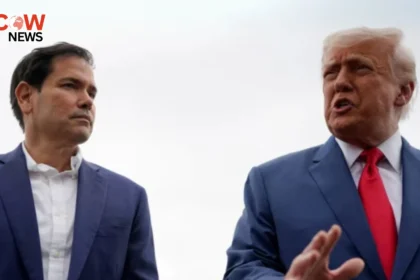Karachi — The Karachi Traffic Police have announced a detailed traffic plan ahead of Dr. Zakir Naik’s highly anticipated lecture at Bara Dari near Jinnah Bagh, scheduled to begin at 7 PM. This event is expected to draw a large audience, prompting authorities to implement special arrangements to manage traffic flow and ensure public safety.
Expected Turnout and Event Significance
Dr. Zakir Naik, a renowned Islamic scholar and public speaker, is known for his lectures on comparative religion and contemporary issues affecting the Muslim community. His lectures attract thousands of followers and curious attendees, making any event featuring him a significant occasion. Given the size of the expected crowd, authorities have recognized the need for an effective traffic management plan to mitigate congestion and ensure the safety of all participants.
Local officials anticipate that thousands of people will flock to the venue, not only from Karachi but also from surrounding areas. This influx raises concerns about traffic congestion, parking shortages, and public safety, necessitating a comprehensive traffic strategy to facilitate smooth access to the event.
Road Closures and Traffic Management Measures
To manage the anticipated surge in traffic, several roads leading to the venue will be closed or restricted. Key roads, including Awan Sadar Road and the stretch from Fawara Chowk to Khajoor Chowk, will see significant changes. These closures are expected to start several hours before the event, allowing ample time for traffic management.
Alternative routes have been established to ease congestion and provide attendees with viable options to reach the event. Vehicles traveling from I.I. Chundrigar Road and Shaheen Chowk will be diverted to PIDC via Ziauddin Road and Khajoor Chowk. From PIDC, traffic will be rerouted to Club Road, enabling cars to proceed towards Clifton or Shahrah-e-Faisal.
In addition to these measures, traffic from the Shaheen Complex signal will be directed towards MR Kayani Chowk and Zainab Market. Meanwhile, vehicles exiting from Fawara Chowk will be directed toward the Awari signal, allowing access to Shahrah-e-Faisal and Teen Talwar.
Parking Arrangements and No Parking Zones
As part of the traffic management plan, authorities have designated several areas as No Parking zones. Both sides of Sindh Club Chowk to Metropole and Fawara Chowk will be off-limits for parking to ensure that roadways remain clear for emergency vehicles and to facilitate the flow of traffic.
These designated No Parking areas are crucial, as they will prevent potential bottlenecks and ensure that emergency services can access the venue if needed. The Karachi Traffic Police have emphasized the importance of adhering to these regulations, urging residents and attendees to avoid parking in prohibited zones to avoid fines and towing.
Communication and Public Awareness
To ensure that residents and attendees are well-informed about the traffic plan, the Karachi Traffic Police have employed various communication channels. Announcements have been made through social media, local news outlets, and community boards to spread the word about the road closures and alternative routes.
Furthermore, traffic police will be deployed at key intersections and points along the diversion routes to guide vehicles and provide real-time information. This proactive approach aims to minimize confusion and streamline traffic flow during the event.
Utilizing Public Transportation
Authorities are encouraging attendees to utilize public transportation whenever possible. Given the expected high turnout, public transport can significantly alleviate the number of personal vehicles on the road. Karachi’s public transport system includes buses and rickshaws, which can provide convenient alternatives for those traveling to the event.
Additionally, ride-sharing services are expected to see increased demand, further reducing congestion. The Karachi Traffic Police are working with local transport services to ensure that additional vehicles are deployed to accommodate the influx of passengers during the event hours.
Previous Events and Lessons Learned
Past events featuring Dr. Zakir Naik have provided valuable insights into managing large crowds and traffic flow. Organizers have learned from previous experiences to anticipate potential challenges and implement more effective strategies. For instance, traffic management during similar lectures has highlighted the importance of timely road closures and the need for clear communication with attendees.
These lessons have informed the current traffic plan, allowing authorities to anticipate areas of congestion and take preventive measures. By analyzing previous events, the Karachi Traffic Police are better equipped to handle the expected turnout and ensure a smooth experience for attendees.
Engaging with Local Communities
In addition to managing traffic, local authorities have reached out to community leaders and organizations to raise awareness about the event and its potential impact on local traffic. Engaging with the community fosters a sense of cooperation and understanding, ensuring that residents are prepared for the increased activity in the area.
Community outreach efforts have included informational sessions and distribution of flyers outlining the traffic plan and alternative routes. By involving local residents, authorities aim to create a collaborative environment that minimizes disruption while maximizing safety.
Safety Measures and Emergency Preparedness
Public safety is a top priority for authorities during large events. In addition to traffic management, comprehensive safety measures have been put in place to ensure the well-being of attendees. These measures include the presence of security personnel, medical teams, and emergency response units stationed near the venue.
Security personnel will monitor the crowd, ensuring that any issues are promptly addressed. Medical teams will be on standby to provide assistance in case of any emergencies, ensuring a quick response to any health-related incidents.
Moreover, emergency response plans have been developed in collaboration with local law enforcement and emergency services. These plans outline protocols for various scenarios, ensuring that authorities are prepared to handle any situation that may arise during the event.
Anticipating Challenges and Contingency Plans
While comprehensive planning is essential, authorities recognize that challenges may still arise during the event. Unforeseen circumstances, such as inclement weather or sudden surges in attendance, could impact traffic flow and public safety.
To address these potential challenges, contingency plans have been established. These plans include the flexibility to adjust road closures and traffic routes as needed based on real-time assessments of the situation. Traffic officers will continuously monitor conditions and communicate with control centers to make necessary adjustments.
By being prepared for various scenarios, authorities can respond quickly and effectively, minimizing disruptions and maintaining public safety.
Community Support and Volunteer Involvement
Community support plays a vital role in ensuring the success of large events. Local organizations and volunteers have stepped forward to assist authorities in managing traffic and providing information to attendees. These volunteers will help guide traffic, distribute flyers, and answer questions from attendees.
Their involvement not only enhances public safety but also fosters a sense of community spirit. By working together, local residents, authorities, and volunteers can create a positive atmosphere for the event.
Evaluating the Traffic Plan Post-Event
After the event, authorities will conduct a thorough evaluation of the traffic management plan to identify successes and areas for improvement. This evaluation process will involve collecting feedback from attendees, traffic personnel, and local residents.
By analyzing the outcomes of the traffic plan, authorities can refine future strategies for similar events. Continuous improvement is essential in adapting to the evolving needs of the community and ensuring the successful management of large gatherings.
The Karachi Traffic Police’s comprehensive traffic plan for Dr. Zakir Naik’s lecture reflects a proactive approach to managing the anticipated influx of attendees. With road closures, alternative routes, and public transportation options in place, authorities aim to facilitate a smooth and safe experience for all participants. By engaging with the community and preparing for potential challenges, the Karachi Traffic Police are committed to ensuring public safety and minimizing disruptions during this significant event.
#KarachiTraffic #ZakirNaik #EventManagement #PublicSafety #TrafficPlan #KarachiEvents #CommunityEngagement #EmergencyPreparedness #PublicTransport #RoadClosure







